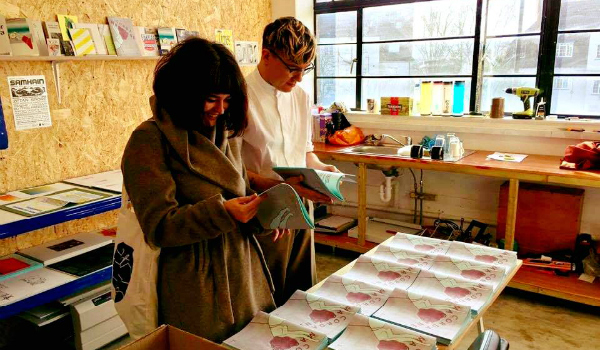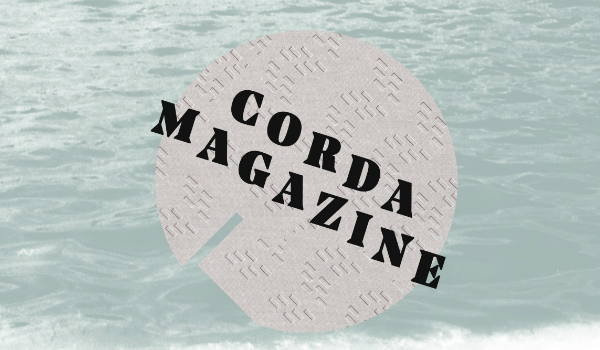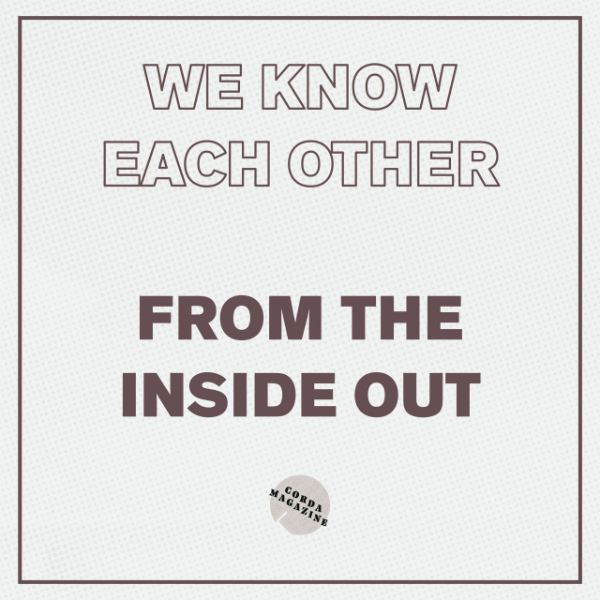Livia Franchini and Sean P Haughton
CORDA is a multi-disciplinary art magazine started in response to the EU referendum. We – Sean and Livia – had met a few months before, in October 2015, shortly after the opening of DIY Space for London, a co-operatively run social centre just off the Old Kent Road, where we both volunteer. Over the last two-years, DIY Space has been playing a central role in bringing together several creative communities in South East London and beyond, allowing for an inclusive platform bringing together activism, DIY music and the arts. CORDA stemmed out of this fortunate intersection, in the immediate aftermath of June 23rd. The day after the referendum a number of us sought refuge at DIY Space, looking for a safe space to process the news. Those of us from European countries felt suddenly unwelcome, othered by such a divisive election result. Our British friends were devastated, too, and desperate to make us feel the opposite way. For a number of days afterwards many of us were still reeling, and often stuck together in large groups, so we could reassure one another vocally that our relationships would not be threatened, that we would stick by one another, and find solutions.
The collective emotional response helped soften the blow, but as the news of “Brexit” sunk in, a few of us felt a need to begin thinking up strategies to cope. Us two had been playing in a band together for a few months but had otherwise quite different backgrounds, spanning some disparate skills in photography, graphic design, translation and writing; we found ourselves discussing if we could find a way to help out by putting these skills to work. CORDA was born of a need to take immediate action against current events and in support of creative communities, as a way to extend the same mutual solidarity we had been able to take shelter in beyond the boundaries of our immediate circle. We decided to start a magazine that could celebrate those connections that brought us together in the first place, and which would reflect the same ethos. When we mentioned the idea of ‘friendship in the time of new borders’ to friends both online and IRL we realised a huge number of people felt like they needed a platform to grieve, vent, or simply talk through the whole thing.
These were pretty solid priorities to go by: CORDA would be a political platform for artists, activists and writers who felt a need to connect to others during difficult times. CORDA would be affordable and independently published. CORDA would seek to publish new writers and artists, offering direct support where possible, pairing writers and translators, and actively encouraging contributions in different languages. Those were the simple guidelines we set as we opened submissions for our first issue.
The response was overwhelming, as the call for submission quickly spread well beyond our immediate community and across national borders. Our first issue features over 40 artists, poets and writers from all over the world, as well as about 10 different languages. For our generation, the English language plays a huge role in being able to make connections and form friendships, yet it is important to acknowledge its colonial connotations and defy the notion that it should occupy some kind of pedestal in an ideal language hierarchy. We envisioned a publication that would use English as a vessel to connect texts and people from different backgrounds, that’s why we included multilingual collaborations, and self-translations by bilingual poets, both British and not. For similar reasons, we welcomed collaborative work and paired writers and artists living in different countries to produce joint pieces.
We’ve always been upfront about being a two-person, fully self-funded operation, and again, this has been met by huge generosity. The first issue of CORDA went to print thanks to pre-orders, and sales so far will make it possible to fund a second issue. Print is a daunting thing to approach and we feel strongly about putting out a publication that doesn’t cater uniquely to the same prohibitively expensive and narrow circles that produce it. Accessibility and low cost are both key.
We’re currently planning the second issue of CORDA. We’re in this for the long run, so we need to keep reminding each other of how borders do not define us. The people you know and care for are real and tangible. They’re not figments, the barriers are.
CORDA is now accepting submissions for Issue Two: cordasursumcorda@gmail.com


